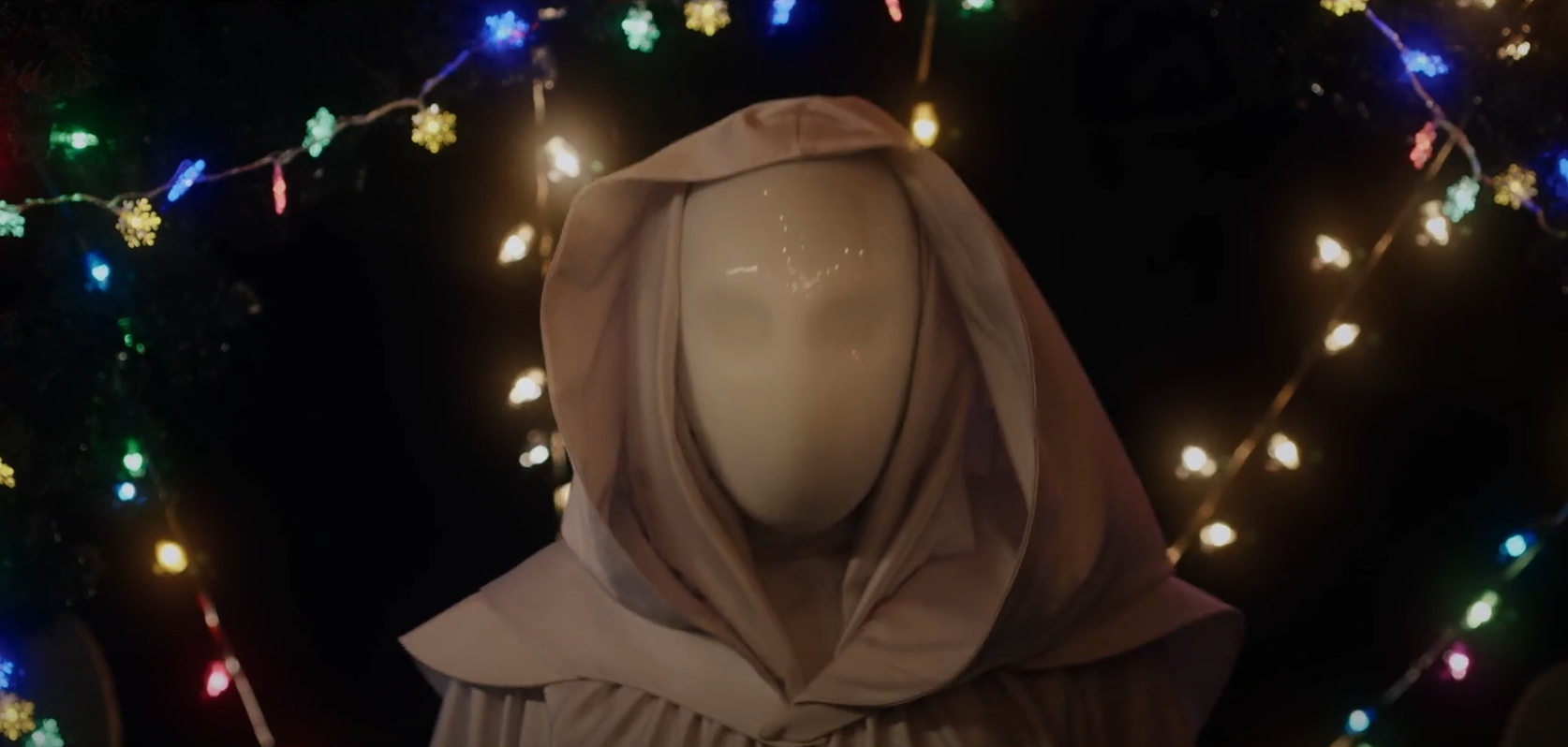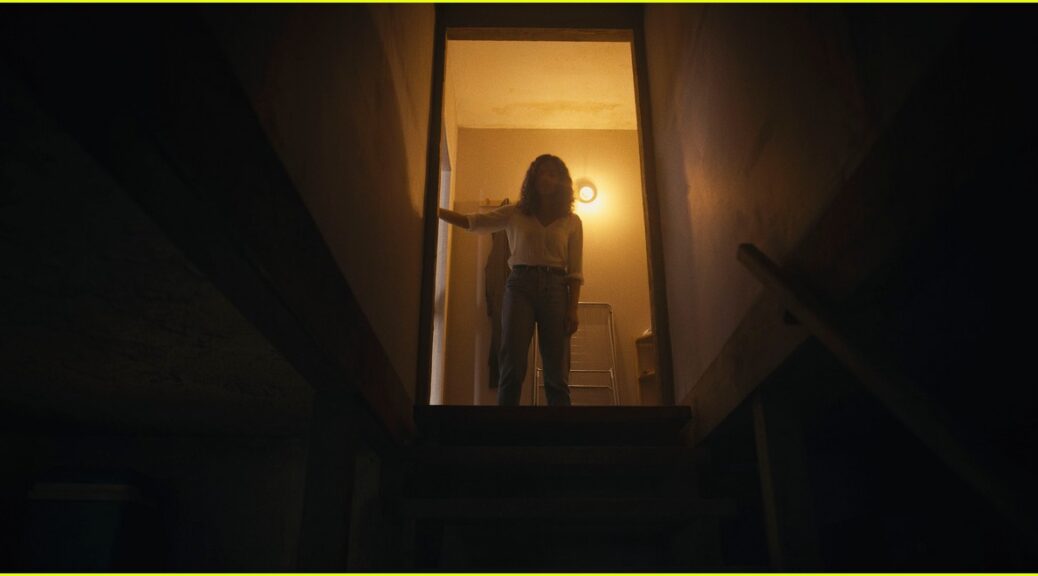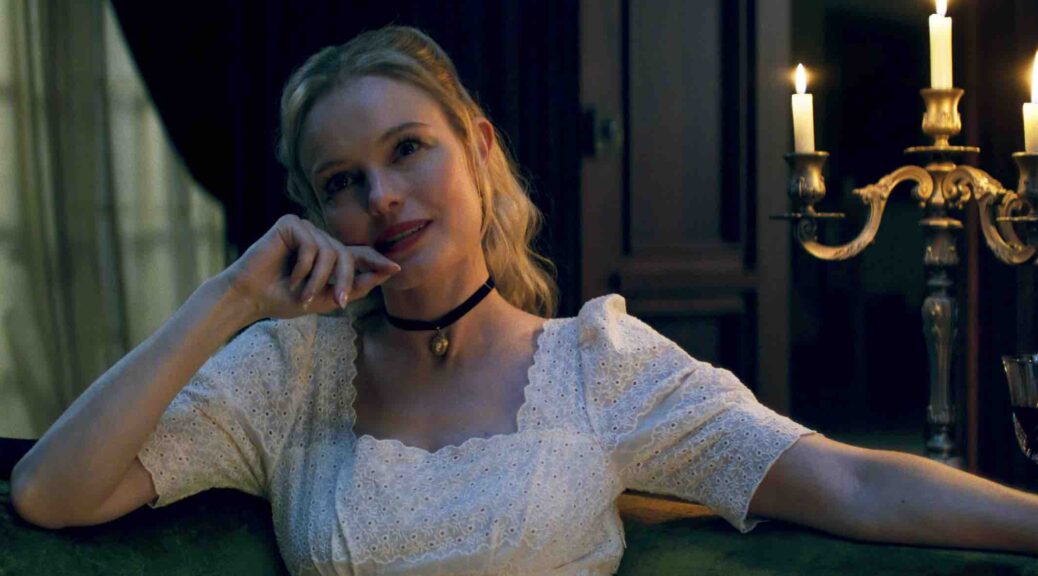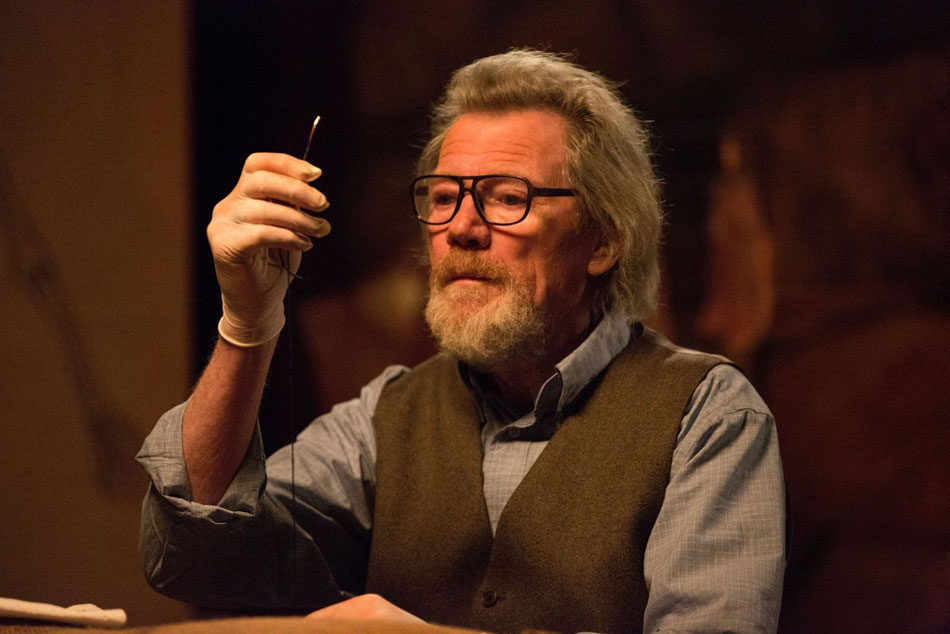It’s a Wonderful Knife
by Hope Madden
For some people, it’s not even Thanksgiving, let’s not get into Christmas movies quite yet, OK? Meanwhile, countless people have been binging Hallmark Christmas tales since July. And the rest of us are still stinging that Halloween is over.
By that math, 2/3 of all viewers will be pleased with It’s a Wonderful Knife, the Christmas story with all the feel-good cheer of the classics and all the bloody knifework of a solid slasher.
The title gives away the film’s core conceit, but honestly, it bore more of a resemblance to Dolly Parton’s 2020 holiday debacle – I mean, charmer – Christmas on the Square. One small town real estate tycoon (Justin Long) intends to turn a historic strip into a shopping and dining oasis, even if it means bullying kindly old Mr. Evans (William B. Davis) into selling his family home.
But wait! No time to think about that when a white clad, knife wielding maniac is on a tear! And all this in the first ten minutes of the movie. Fast forward one year and everyone’s pretty much over those murders, except Winnie (Jane Widdop). No one cares, no one notices, it wouldn’t even matter if she’d never been born (…never been born…never been born…).
Director Tyler MacIntyre (Tragedy Girls) and writer Michael Kennedy (Freaky) have some fun piling on the holiday film cliches. And there are plenty of reasons to enjoy their movie.
First of all, Justin Long. There are few people more reliably fun to see in a horror flick, and in this one he rocks a spray tan and fake teeth. So many bonus points.
Also fun, Joel McHale (Becky), who is somehow now the go-to for horror movie supportive dad with daughter issues. Add the always welcome Katharine Isabelle, and though she’s tragically underutilized, it’s great to see Cassandra Naud (who was phenomenal in Influencer).
The story itself, with its plot twists and turns, is not as clever as it pretends to be. It is wryly funny, though, and often quite sweet. It’s not as raucous as Kennedy’s Freaky nor as badass as MacIntyre’s Tragedy Girls, but it is a bloody slice of Christmas fun.









